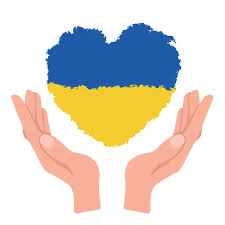Lawyer
Legal mechanisms to protect the rights to freedom of assembly for persons who have experienced violence in the occupied territories
Ensuring the right to freedom of assembly is a fundamental component of a democratic society. However, in the occupied territories, where human rights violations often occur, the realization of this right can be significantly complicated. Persons who have experienced violence in the occupied territories face particular challenges in protecting their rights. In this article, we will consider the legal mechanisms for protecting the right to freedom of assembly for such persons, in particular through legal advice, document analysis, legal opinions and legal opinions of lawyers.
Consultation of a lawyer
Consulting a lawyer is the first step for those who have experienced violence in the occupied territories and wish to protect their rights to freedom of assembly. A qualified lawyer can provide information about the legal options available in the national and international legal field, as well as help with the preparation of the necessary documents for the protection of rights. A lawyer can explain what steps need to be taken to submit complaints to the relevant authorities or courts.
Analysis of documents
Analysis of documents is an important stage in the process of rights protection. The lawyer carefully studies all available documents confirming the facts of violence and violations of the right to freedom of assembly: testimonies, medical reports, photographs, video recordings, statements of witnesses, etc. A thorough analysis of documents allows you to identify all the circumstances of the case and prepare a well-founded legal position. This includes the study of legal acts that can be applied to protect the rights of victims.
Legal opinion
A legal opinion is the result of a detailed analysis of documents and the legal situation. This document contains a legal assessment of the available evidence and recommendations for further action. A legal opinion can be used as a basis for filing a lawsuit in court or applying to other authorities for the protection of rights. For example, in cases where individuals have suffered violence for participating in peaceful assemblies, a legal opinion can be the basis for claims for compensation for damages and restoration of violated rights.
Legal opinion of the lawyer
The lawyer's legal opinion has special weight, because the lawyer has special knowledge and experience in the protection of human rights. A legal opinion may include an analysis of national and international law, case law precedents, and recommendations on the most effective legal protection mechanisms. A lawyer can provide a detailed action plan for filing complaints with international organizations, such as the European Court of Human Rights or the UN Human Rights Committee, if national remedies have proved ineffective.
Conclusion
Protecting the rights to freedom of assembly for persons who have experienced violence in the occupied territories requires a comprehensive approach and the use of various legal mechanisms. Consultation of a lawyer, detailed analysis of documents, preparation of legal opinions and legal opinions of lawyers are the key stages of this process. Thanks to professional legal assistance, such persons can effectively protect their rights, restore justice and receive compensation for the damages incurred. It is important to remember that the protection of the right to freedom of assembly is not only a matter of individual interest, but also an important element of the protection of democratic values and human rights in general.

































